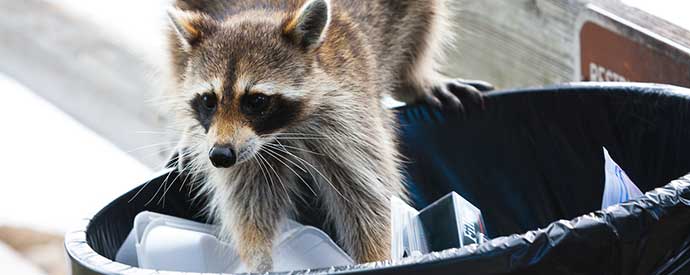 Raccoons have easily adapted to the urban life. These creatures are commonly observed or even directly encountered in neighborhoods, parks, and other areas where people and pets frequent.
Raccoons have easily adapted to the urban life. These creatures are commonly observed or even directly encountered in neighborhoods, parks, and other areas where people and pets frequent.
While known for their cute bandit-like eyes and careful movements, these critters have the ability to carry many infectious diseases that may detrimentally impact the health of humans and other animals. Additionally, they have the capability of scratching and biting.
If you have a raccoon or two lingering in or around your property, it is time to seek out raccoon removal services. Continue reading to learn about the infectious diseases carried by raccoons.
There are, typically, two main methods of disease transmission from raccoons to people and/or animals. The first is direct contact with the infected raccoon. The second is by coming in contact with the waste left behind by raccoons.
This waste may include secretions of bodily fluids, feces, hair, and skin. Raccoons are known to shed parasites, viruses, and bacteria as they move and live. If people or animals come in contact with these substances, their risk for contracting an infectious disease is drastically increased.
In short, if you have an issue with even just one raccoon, you must enlist the assistance of raccoon removal services in order to properly protect your health.
The following provides an outline of the infectious diseases transmitted by raccoons, as well as a brief explanation of each:
Raccoons pose many significant health hazards. Many come from direct contact while others come from contacting debris left behind by raccoons.
If you have a raccoon issue, contact us today!